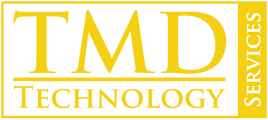![]() Getting hacked or getting a computer virus is most computer users’ worst nightmare. All devices no matter the Operating System (Mac, Windows, Linux, Android, etc) are susceptible to being hacked or having malicious software put on them. Your computers, smartphones, tablets, and TVs all can be hacked and used to collect information about you that can later be sold or posted online.
Getting hacked or getting a computer virus is most computer users’ worst nightmare. All devices no matter the Operating System (Mac, Windows, Linux, Android, etc) are susceptible to being hacked or having malicious software put on them. Your computers, smartphones, tablets, and TVs all can be hacked and used to collect information about you that can later be sold or posted online.
1. Using the same password over and over again
This may come as news to you, but whenever there is a breach in a company’s database or information, emails, passwords, names and other confidential information is what usually gets posted online. You can check if your information has been posted online here, just type in your email address and it will tell you if your account is posted online somewhere.
2. Visiting questionable websites
Whether you mean to or not, you may end up at a questionable website. You might click on a pop-up ad or a bad link in an e-mail. Either way these types of websites do NOT have your best intentions in mind. To avoid pop-ups or other questionable blockers, check out services such as Adlock Plus for Google Chrome or Firefox.
3. Failing to update software
One of the easiest ways for hackers to access your computer is by not updating your software. Software makers are always plugging security holes to prevent this from happening, but if you don’t have the latest version, you can be more likely to become a victim. Hackers are always trying to exploit the know issues since after all they are known.
4. Downloading illegal online content
Sure it is easy to get the latest music, movies, or games online but resist this temptation. First, it’s illegal. second, it can cause some serious issues. Hackers know lots of people are searching for free content like this online so they put viruses and Trojan viruses into illegal content. It is just waiting for you to download and run it.
5. Unsafe web searching
Make sure you use the real Google, Yahoo or Bing as your search engine rather than another browser. Sometimes a toolbar will change your search engine to theirs so they can make some money from advertisements. Browser redirection can be a real drag. Search results are typically paid for and likely not what you expected.
6. Clicking unknown links or opening attachments in your e-mail
This one is very essential now-a-days because everyone gets a few hundred e-mail messages a day. Most of them are spam but a few of them look legit because they claim to be from your bank, courier services or some other well-known company. They are just there to get you to click a link then steal your login information. Never click a link in an email and be cautious when opening attachments (especially zip files)
7. Installing junk software
Free is not always a good option and that old adage you get what you PAY for comes to mind. Ask yourself does it make sense for someone to spend all that time making a program then just give it away? Nope…Most of the time they expect you to just hit next when installing and also install their partner advertisements and other junk on to your computer.
8. Not keeping virus or malware scanners or software up-to-date
By not updating your scanners you are basically scanning your computer for viruses that are old. Most scanners now update their virus definitions hourly or at least daily. So it is very important to check in with your scanner at least once a week and make sure all is running smooth. Generally they have a dashboard that will let you know.

